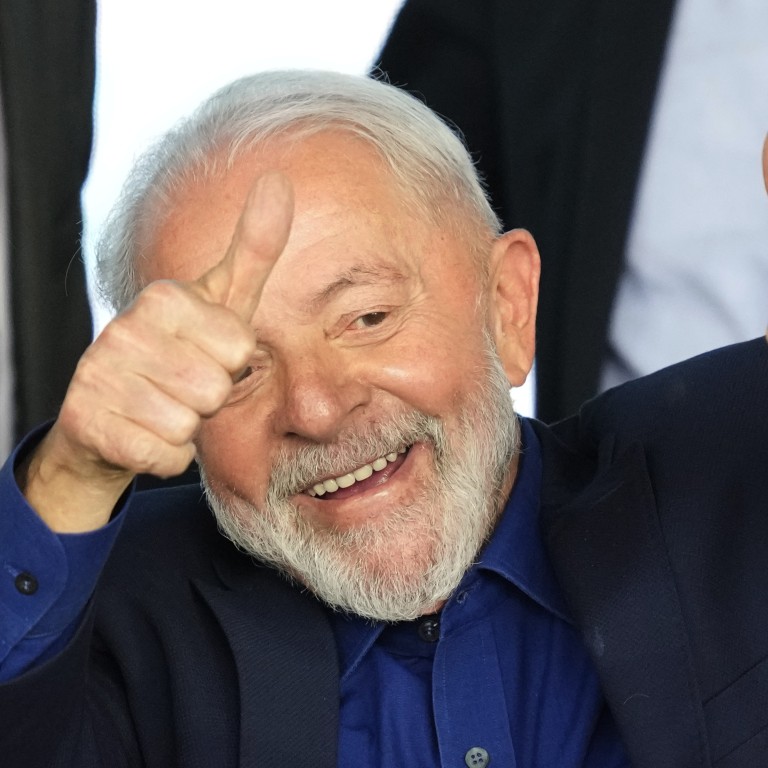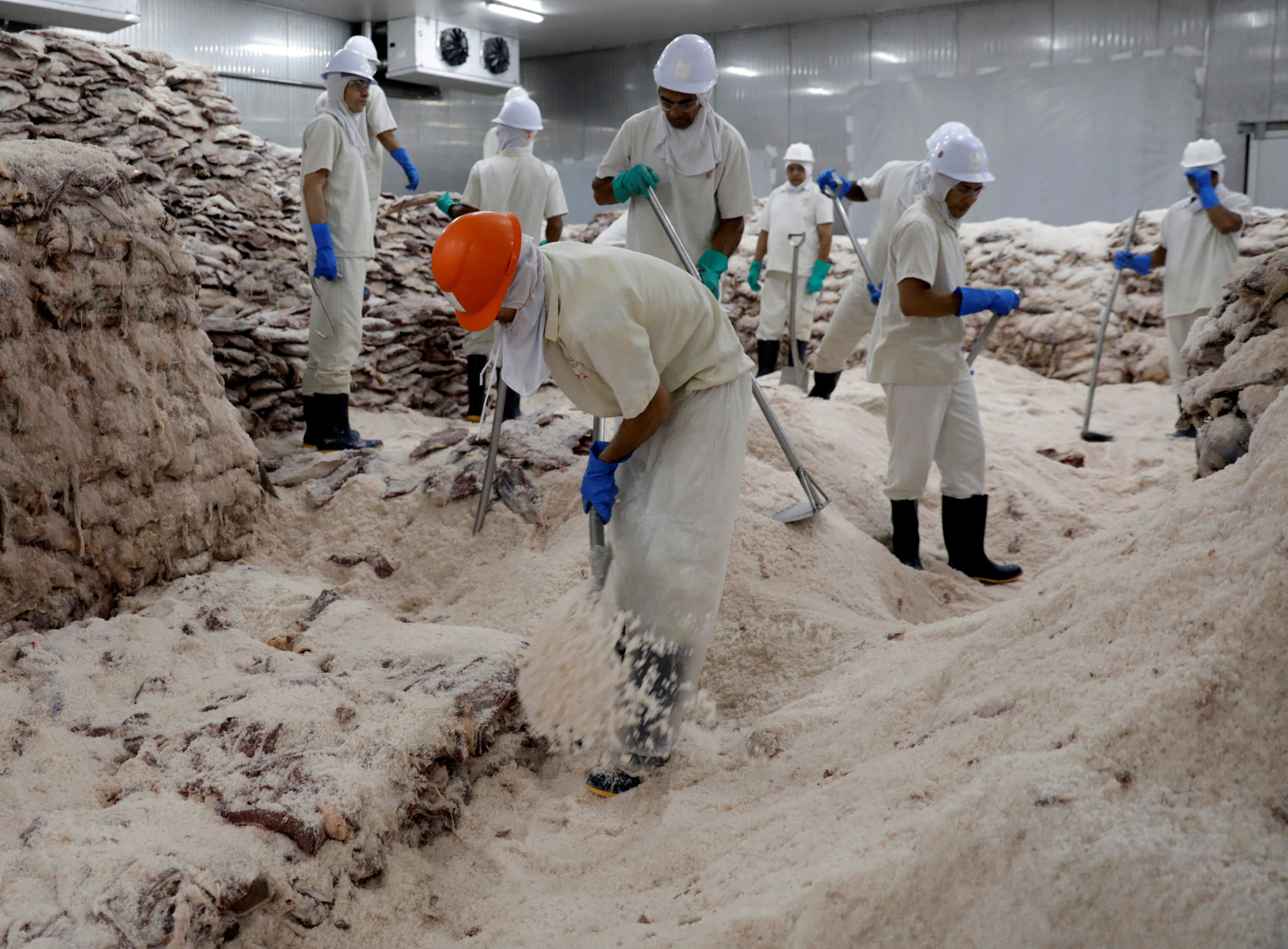
Brazil’s Lula reunites with meat billionaire Batista brothers as China trade ties bloom
- The Brazilian president, along with Wesley and Joesley Batista, visited a JBS factory that is set to make the first shipment of meat to China as part of a new deal
- The brothers were earlier embroiled in a corruption scandal that brought down thousands of politicians including Lula
The billionaire Batista brothers’ stunning comeback is thrusting them into Brazil’s highest circles of power less than three weeks after their appointment to the board of JBS SA.
Wesley and Joesley Batista – who grew their family butcher shop into the world’s largest meat producer with crucial help from Brazil’s development bank during President Luiz Inacio Lula da Silva’s past administrations, then became involved in a massive corruption scandal that brought down thousands of politicians including Lula – are now hosting the leftist leader in one of their plants that will start exporting to China.
Friday’s encounter in Campo Grande, a centre-west capital in Brazil’s agricultural heartland, is part of Lula’s bet that increasing agricultural exports to the world’s second-largest economy can help reproduce the commodities-fuelled good times he oversaw in the beginning of the century.
They met at a JBS factory that is set to make the first shipment of meat to China as part of new export agreement reached in the wake of Lula’s trip to the country last year. A total of 38 Brazilian plants recently received authorisation to send products to the Asian nation.
“This family is predestined for success,” Lula said during the event. “Joesley and Wesley are responsible for this company becoming the largest animal protein company in the world. This is a source of pride for me. If we want, we can do anything we dream.”
Brazil soybean city seeks to lure Chinese investments in grain-crushing industry
JBS plans to invest roughly 150 million reais (US$29 million) to double daily production capacity at the Campo Grande facility to 4,400 cattle heads, Chief Executive Officer Gilberto Tomazoni said during Friday’s ceremony.
Brazil already relies on China for more than half of its beef exports and 70 per cent of its soybean shipments. But Lula last year sent hundreds of leaders from the country’s influential agribusiness sector to Beijing in hopes of convincing Chinese President Xi Jinping’s government to further deepen its dependence on Brazilian farm products.
The authorisation of the 38 plants is expected to boost Brazil’s trade balance by 10 billion reais (US$2 billion) over the next year, Roberto Perosa, the agriculture ministry’s secretary of commerce and international relations, said at a Thursday press conference.
It comes at a crucial time for Lula: A year after a bumper harvest helped fuel an export boom and better-than-expected growth, Latin America’s largest economy is widely expected to slow across 2024 – in part because of lingering uncertainty about China’s strength.

For the Batistas, who control JBS through their family holding firm J&F Investimentos SA, the event is the latest step in their return to prominence in Brazil and worldwide. The brothers who spearheaded the company’s overseas expansion left it after confessing to bribing hundreds of politicians in a 2017 plea deal with Brazilian authorities.
But they were part of the delegation that Lula sent to China last year. And in late March, they were named to the JBS board, paving the way for their return to the meat giant their father founded as a small butchery more than 70 years ago.
JBS is now the world’s largest supplier of beef and chicken. In Brazil, its US$73 billion in annual revenues rank second only to Petroleo Brasileiro SA, the country’s state-controlled oil behemoth.
US must update Latin America toolkit to keep pace with China sway: officials
The brothers are set to join the board in the midst of the company’s push to list its shares in the US, as it attempts to access cheaper financing and more equity to continue making deals. The effort, however, has faced pushback from lawmakers in the UK who argue that its practices pose a threat to the environment.
It remains unclear whether Lula’s government will back the company it once helped boost. Brazil’s national development bank, which will be key for the proposal’s approval, has not yet said publicly whether it supports the move.
Asked about the administration’s position on Wednesday, Agriculture Minister Carlos Favaro did not comment.

